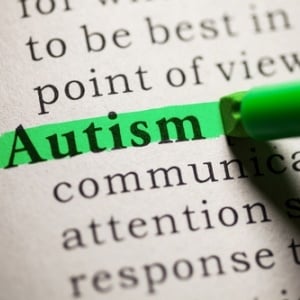
Autism is treatable by means of a synergistic or multi-disciplinary, child specific approach.
Therapies:
Autism specific therapies might include Applied Behaviour Analysis, Relationship Development Intervention, Floortime (DIR), TEACCH, Son-Rise and Relationship Developmental Intervention.
It is of the utmost importance to use a child-specific approach and address child-specific deficits
A rehabilitation programme will usually include:
• Occupational Therapy and sensory integration therapy
• Speech Therapy
• Other: Auditory Integration Training, Listening Programmes, Primal Reflex Therapy, HANDLE therapy, Braingym, Biokinetics, etc.
Biomedical Treatment
In South Africa, medication tends to be used to treat specific behaviours related to autism such as hyperactivity, aggressive behaviour and sleep disorder. Autism affects individuals differently, so appropriate medication is used for specific reasons.
A more functional approach to medical treatment in autism has shown to optimise outcome much more effectively. Biochemical assessment and supplementative therapies are being researched and applied with positive benefit.
Dietary intervention may be appropriate to address certain symptoms or disease in autistic patients. Some children demonstrate an improvement when dietary restrictions are implemented.
There are several indicated diets with anecdotal evidence of benefit for children on the autistic spectrum, of which the most research has been conducted on gluten-free and casein-free diets. There is also significant research on the gut micro biome in children with autism.
Symptoms that are expected to improve by dietary intervention may include the following: slurred speech, lack of eye contact, unstable gait, high pain threshold, poor sleep patterns, high rates of self-stimulatory behaviour, poor responses, mood swings, aggression, isolation, self injurious behaviour, etc.
The easiest way to approach diet is by the elimination approach. This entails removing all possible culprits and then reintroducing them, one food at a time, once the child has reached a “stable condition”, usually around four weeks.
Many children with ASD seem to have a problem digesting complex carbohydrates. Removing potatoes and other complex carbohydrates at some point in the diet and reintroducing them, might be worthwhile.
It is most important to note that a child-specific diet can only be established by eliminating all offending foods for a short period of time and then reintroducing foods systematically.
It’s essential to use a food diary to keep track of foods that are well-tolerated, note those that need to be eaten in rotation (every four to five days), or list hose that need to be excluded from the diet until the gut has healed and tolerance improves.
Reintroducing foods must be done, one food at a time, every five to seven days. Be careful not to introduce more than one new thing, as backtracking will be required to remove both or more if there is a reaction.
An elimination diet is a long painful journey, with a lot of uncertainty about whether or not the child can tolerate certain foods. An initial Baseline diet is so much easier, as it ensures a reaction when new food is introduced. The child needs to be observed to see if it is well tolerated or not.
It is always important to check labels and contact suppliers. Try to focus on what is IN THE PRODUCT and not what is NOT IN THE PRODUCT. Read labels carefully!
Read more:
Reviewed by Dr Louise Lindenberg, MBChB (Stell), MFHom (UK). Integrative Medical Practitioner specialising in Disorders on the Autism Spectrum in children, Cape Town. February 2015.
Previously reviewed by Jenny Buckle, Reach Autism SA, (November 2010)




 Publications
Publications
 Partners
Partners
















